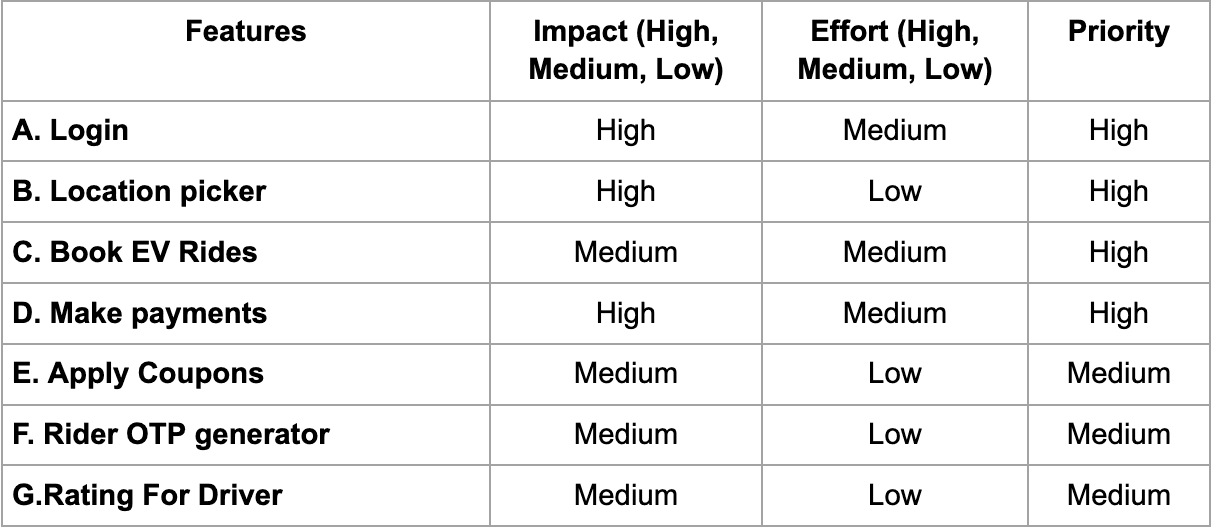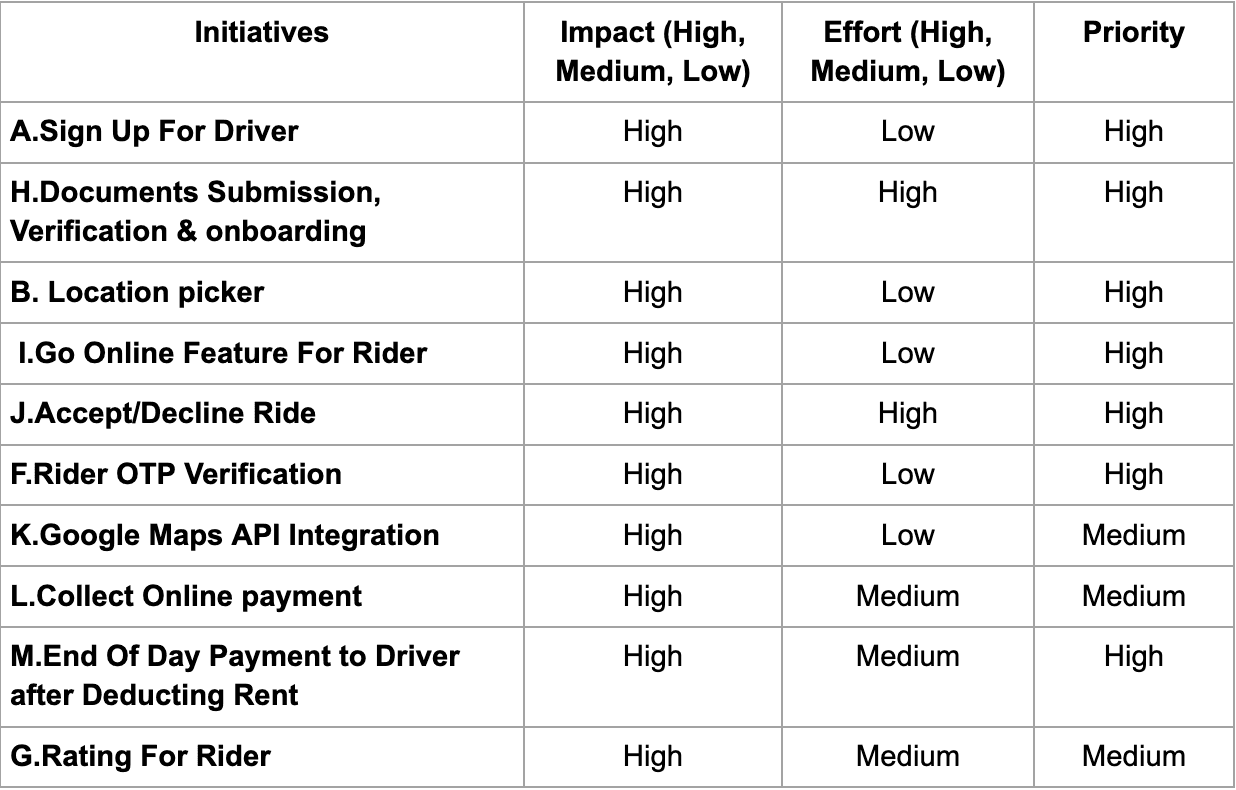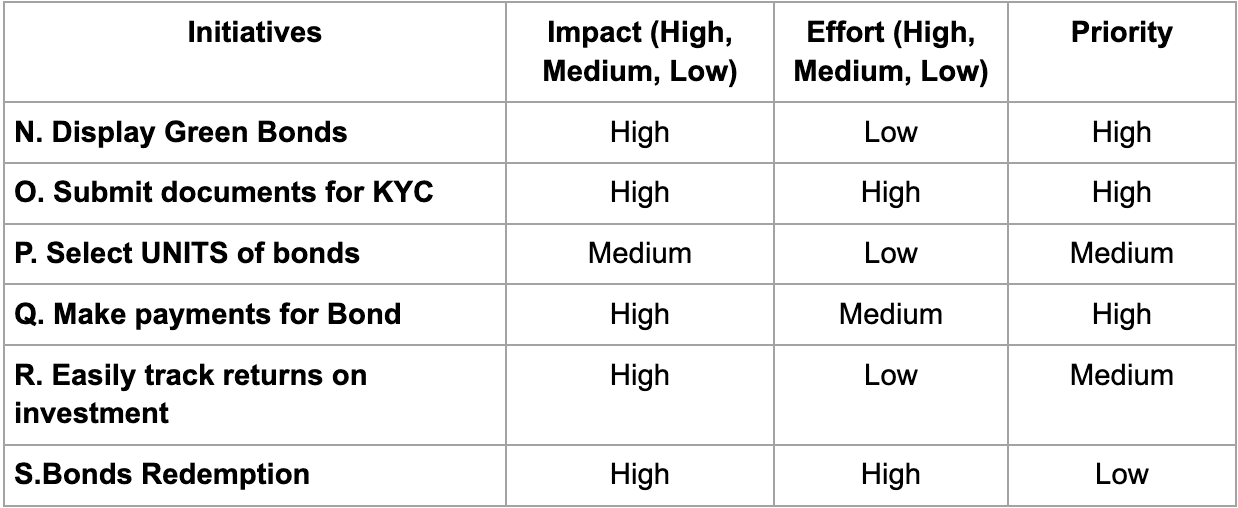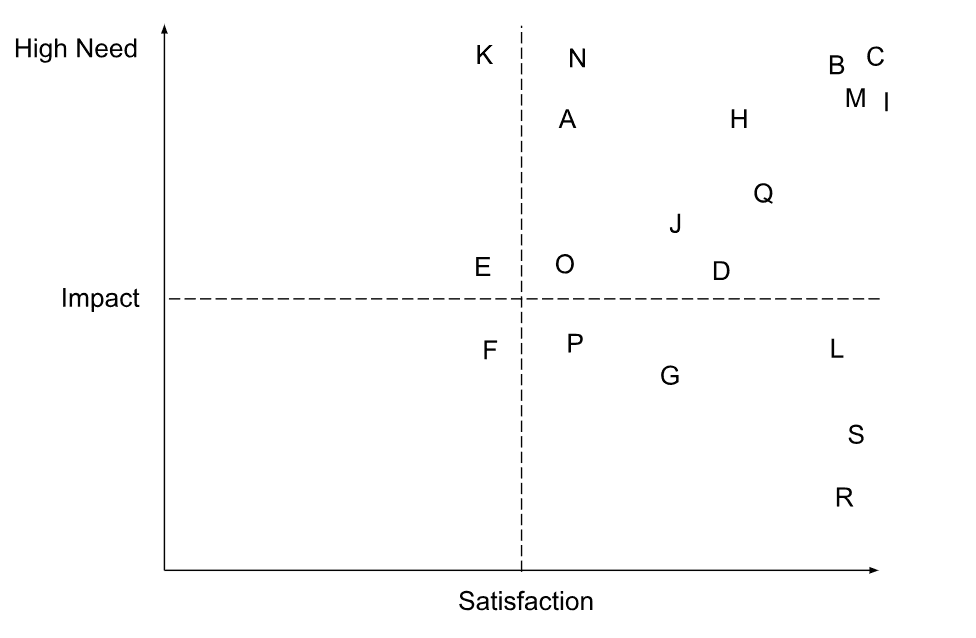Vamos - Impact Vs Satisfaction and Business Plan (Part II)
Jan 20, 2024
This is the continuation of Vamos - Cab transportation platform for Latin America
Impact Vs Satisfaction Matrix
Rider Feature

Driver Feature

Investor Feature

Impact Vs Satisfaction Graph

Idea and Business Model: Revolutionizing Chile's Electric Vehicle Taxi Sector with Vamos
Expanding our cab app, Vamos, in Chile taps into the country's global lithium hub prominence. The 'My Electric Taxi Program' by the Chilean government fuels an immense opportunity for an EV cab industry.
Due to recent Regulations in December 2023 over minimum engine size and the maximum age of cars limit will prevent many drivers from working in the cab industry ,this will also reduce the number of cabs available in the market which will create difficulty for both Drivers & Riders.
To create a win-win for riders, drivers, government, investors, we introduce 'Senator- A special purpose vehicle.
Green bonds and public investments fund this special purpose vehicle, promoting Chile's green future. Leveraging government subsidies, the Senator procures EVs, providing jobs for Vamos drivers.
Drivers pay a daily rent based on rides in 24 hrs. Drivers Driving more enjoy lower rent: 7000 Chilean Peso for above 150 kms, 12000 for 100 km, and 16000 for less than 50 km, incentivizing increased driving. (1 Rs = 10.73 Chilean Peso)
Drivers in challenging terrains have reduced targets for equality: 5000 Chilean Peso for above 250 km, 10000 for 150-250 km, and 12000 for less than 150 km.
Vamos charges a 30% commission, with drivers free from car liabilities. If drivers make fewer trips, higher rent covers Vamos costs via Senator, ensuring sustainability. Vamos shares 10% of profits with Senator, fostering a mutually beneficial partnership.
Business Model
Introduction:
Vamos, an established cab transportation app, is expanding into Chile, capitalizing on the country's significant lithium reserves and the government's initiative to promote electric mobility in taxi services.
Strategic Focus:
Electric Vehicle (EV) Cab Industry: Positioned to leverage Chile's global leadership in lithium production, Vamos aims to establish an EV cab industry in alignment with the 'My Electric Taxi Program' introduced by the Chilean government.
Revenue Streams:
Rider Fees: Vamos charges riders for each trip, ensuring a consistent revenue stream.
Driver Daily Rent: Drivers pay a daily rent based on the number of rides they complete, creating a financial incentive for increased activity.
Per Ride Commission: The platform retains 30% commission on each trip, contributing to overall revenue.
Special Purpose Vehicle (Senator):
Objective: Creation of a dedicated entity, Senator, to facilitate the transition to an EV fleet by raising funds through green bonds and public investments.
Procurement: Senator utilizes raised funds, government subsidies, and public contributions to procure EVs, offering them to drivers at subsidized rates.
Driver Engagement Model:
Financial Incentives: Drivers are motivated to drive sustainably with EVs through charged daily rents. Driver’s Rent will be reduced as per Driving target achieved by him , more Distance covered by driver will result in less rent paid,fostering a win-win situation for both drivers and Vamos.
Liability-Free Driving: Vamos assumes responsibility for vehicle-related costs, such as insurance,maintenance creating a stress-free environment for drivers.
Profit Distribution:
Vamos: Retains 30% commission from each ride, ensuring profitability.
Senator: Receives 10% of the profit from every ride, creating a symbiotic relationship with Vamos.
Driver: Drivers benefit from reduced daily rents based on high ride volumes, further encouraging active participation.
Environmental Impact:
Green Future of Chile: By actively promoting EVs and reducing carbon footprint, Vamos contributes to Chile's environmental goals, aligning with global energy transition initiatives.
Scaling Opportunities:
International Expansion: Vamos can replicate this model in other regions of Chile and potentially expand to Other countries with similar environmental agendas and government incentives.


